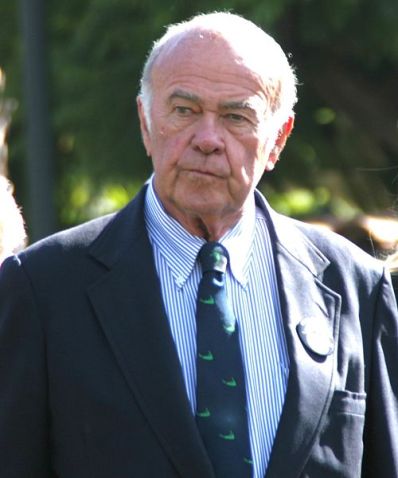Sander Vanocur, Distinguished Journalist, Dies
TV Reporter Who Covered Civil Rights, Vietnam, and Nixon

If you are going to tell the story of television’s impact on America, you are going to be talking about Sander Vanocur every step of the way.
If you’re measuring how TV brought the story of civil rights into the living rooms of millions — and in those days, there was only one TV and it was in the living room — you will see Vanocur sitting down with Martin Luther King Jr. to talk about the strategy and tactics of the movement.
If you want to look at the medium’s impact on politics, you’ll find Vanocur questioning John F. Kennedy and Richard Nixon at the very first televised presidential debate in 1960, and you will see him again a generation later in1992, questioning Clinton, Bush, and Ross Perot.
When political conventions mattered — when they were genuine battles for the nomination instead of scripted infomercials, you’ll see Vanocur roaming the floor in search of news and — most engagingly for me — sitting down at night’s end with John Chancellor, Frank McGee, and Edwin Newman for an informal chat about the day’s doings.
And if you’re looking for the emergence of the “biased left-wing media” argument, Vanocur was at the center; his alleged closeness with the Kennedys made him an adversary, if not enemy, in the eyes of Richard Nixon; so much so that when he was hired by PBS, at the then-eye-opening sum of $85,000 a year, pressure from the right forced the Corporation for Public Broadcasting to scrap their proposed political show before it ever started. (After a few years in the wilderness, he wound up at ABC News).
Most significant, Vanocur — and his colleagues — were dominant figures in network TV news when network TV news was the dominant medium in telling America about what was happening. There were three broadcast networks; no cable; no websites; no social media. Every night, nine out of ten homes with TV sets were tuning into one of the three broadcast networks, in part to become informed, and in part because there was nothing else to watch. When Walter Cronkite famously — if a bit arrogantly — signed off by saying “and that’s the way it is,” there was no other source to argue “no, not necessarily.” It was that very dominance that led Vice President Spiro Agnew to launch his famous attack on network news in 1969 as “a tiny and closed fraternity of privileged men, elected by no one and enjoying a monopoly sanctioned and licensed by government.”
In once sense, Vanocur embodied the outward qualities that made for a TV journalist. He was handsome with piercing eyes, a distinguished “high forehead,” and a rich voice that communicated authority. In a more important sense, he embodied the qualities that should define a journalist who reached millions. He was deeply informed, with a grasp of history and geopolitics that gave his reports — whether from a convention floor or a world economic summit — genuine authority. In conversation he would meet a questionable idea with a pause and then a response grounded in a history you only wished you knew. There was good reason for his onetime boss, NBC’s Reuven Frank, to call Vanocur “the best political reporter I ever worked with.”
It is a sad coincidence that Vanocur died the same day Cokie Roberts of ABC and NPR died. Together they represent a kind of journalism that almost seems to be of another era: a knowledge of, and respect for, the political process and poetical players — now often criticized as too accommodating — with a willingness to challenge and confront those very players. If “the passing of an era” is a well-worn cliché, it seems unhappily on point right now.




You must be logged in to post a comment.